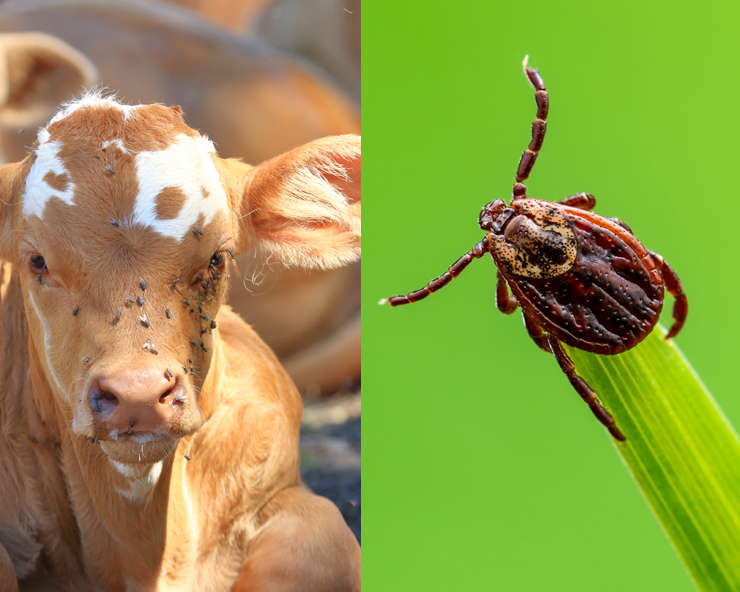As we move into summer and the weather gets warmer, we tend to see an increase in vector-borne diseases (VBD). Vectors are insects, rodents, birds, or other animals that can carry disease pathogens. The most common vectors are insects that suck blood, such as mosquitoes and ticks. VBDs occur in both animals and humans. Every year there are about 700,000 human deaths from vector-borne diseases occur worldwide.
How are diseases spread through vectors?
Vector-borne diseases can be spread in two ways – mechanically and biologically. When disease is spread mechanically, the vector simply transports it on its contaminated body. Pink eye is a VBD that is spread mechanically by flies. Biological transmission occurs when a vector, like an insect, uptakes the pathogen. Then the disease replicates or develops in the vector. The vector can then transfer the disease by putting it on or into an animal or human. An example of biological spread of a VBD is Lyme disease, which is carried by ticks and affects both animals and humans.
What are common disease vectors?
In the U.S., the most common vector is the tick. Throughout the world, mosquitoes are the most common and transmit many deadly diseases. Other common vectors include fleas, filth flies, sandflies, midges, and lice. Rodents and birds also are capable of being vectors of disease. Salmonellosis is a disease that can be spread by rodents and birds as well as flies.
What are common diseases spread by vectors?
VBDs can bring risks to both livestock and humans. It is important to keep a careful eye on your health and your herd’s health. Diseases spread by vectors to animals include:
- Avian influenza
- Lyme Disease
- Pinkeye
- Q Fever
- Salmonellosis
- West Nile Virus
- Staph aureus
- Bovine Leukemia Virus (BLV)
Because VBDs can spread to humans as well, you should take care to protect yourself. A few VBD diseases that are a risk to people include Lyme disease, salmonellosis, and West Nile Virus.
How can I protect my herd from disease vectors?
There are various protections you can take to protect your herd. As the weather warms and rain increases in spring and summer, insect populations grow. Rotate pastures and your grazing ground regularly to prevent the build-up of manure which can attract vectors. Using insect controls like fly traps, essential oils, and manure management can help reduce the insect burden on your farm/ranch. Secure feed containers can help protect your feed from birds, mice, and rats, which can spread disease. Taking steps to avoid warm standing water and spilled feed can also help prevent insect population growth.
How can I protect myself from disease vectors?
It is important to take precautions for your health as many vectors carry diseases that can spread to humans. When working outside, wear clothes with full coverage to prevent bites. Using insect repellents or essential oils can also aid in preventing bites. Standing water and overgrown leaves, grass, and shrubbery are great breeding grounds and homes for insect pests. If possible, remove debris from your yard or farm to help lower insect populations. If you have concerns about symptoms after bug bites, contact your physician.
VBD Resources:
CDC-Disease Carried by Vectors
GlobalChange.gov-Vector-Borne Diseases
MSU CANR-Livestock Pest Management
Allina Health-Buzz off! Protect yourself from annoying bugs this summer

